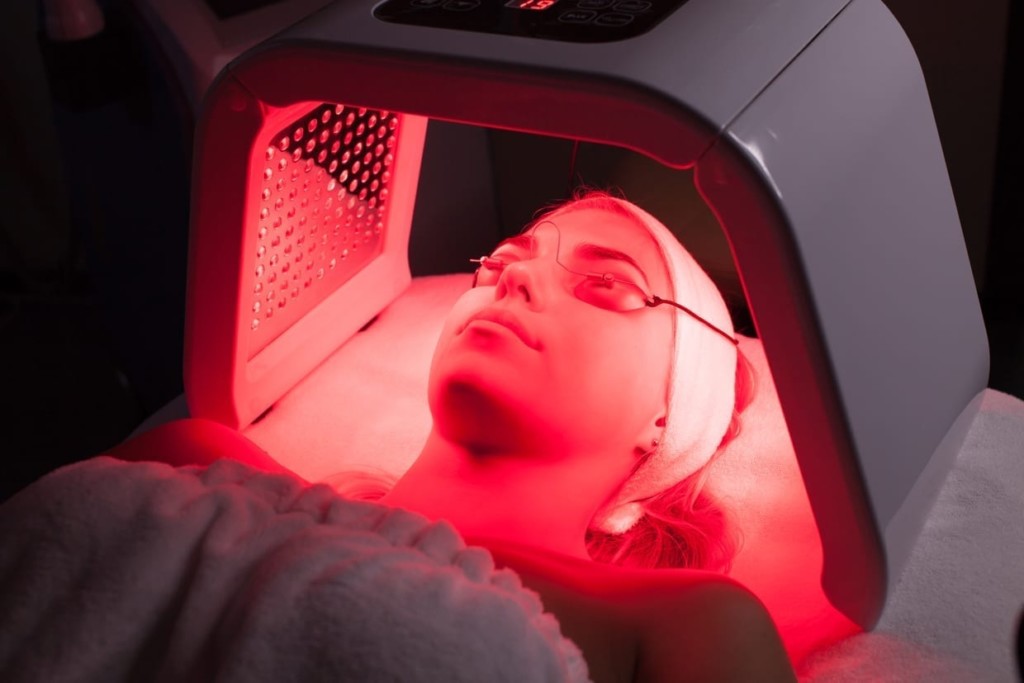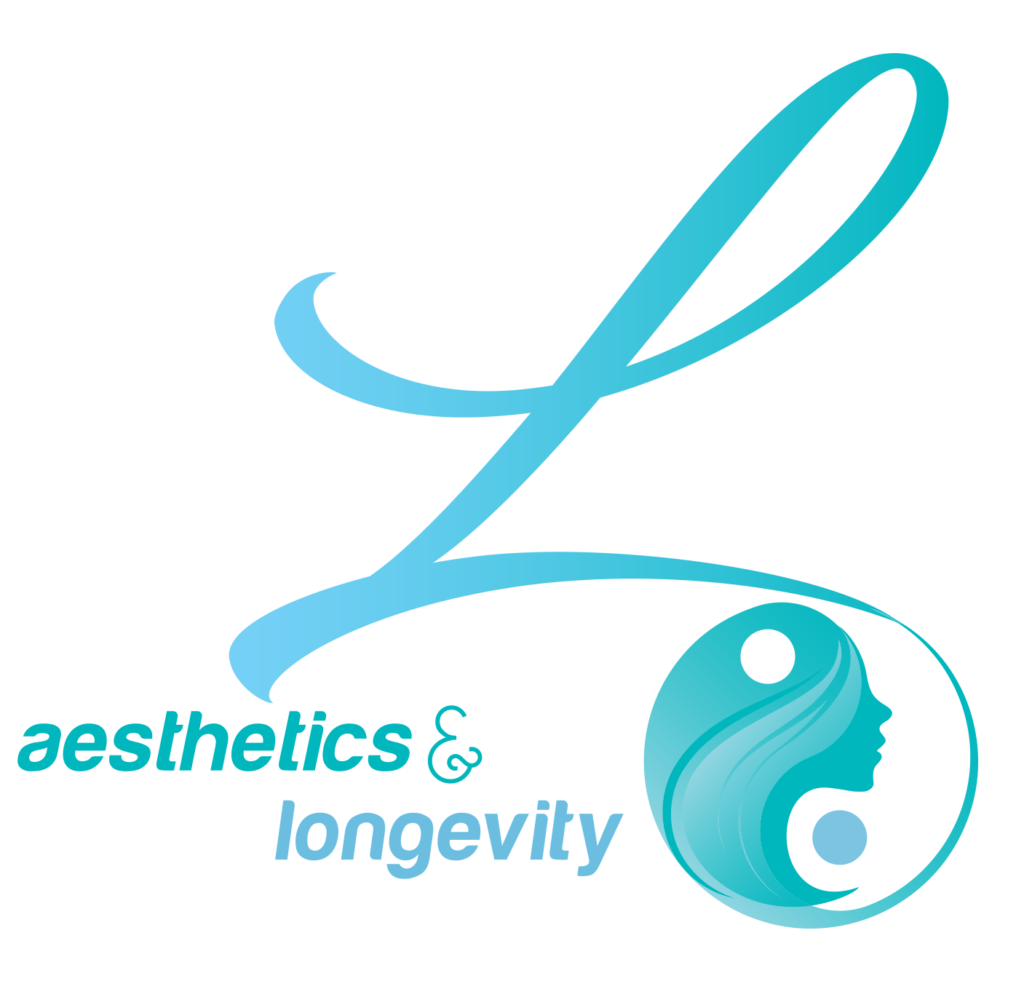By Natalie Ledbetter CRNA, DAcOM
Many of us are interested in how to hack hair loss. Thinning hair is common in both men and women. 53% of men in their 40’s have moderate to advanced hair loss. 15 to 20% of women under 50 experience hair loss. There are many things that can affect hair health, but the most common causes of hair loss fall into 3 categories- stress, hormone imbalances, and chronic inflammation.
Three most common causes of hair loss

- Stress
Stress plays a huge role in contributing to hair loss. During times of stress, the body pulls resources from all nonessential systems including the hair. Modern life can be a source of chronic stress. Fifty-nine % of the working age population in America report feeling significantly stressed out. A constant state of stimulation to the nervous system from devices is a common stressor. Most Americans don’t disconnect from technology long enough for the body and mind to relax.
Long term elevations of the stress hormone cortisol cause about a 40% decrease in synthesis of hyaluronic acid and proteoglycans, both of which protect the hair follicles and help them grow. When levels run out, hair begins falling out and it does not grow back naturally. Stress related hair loss usually occurs within 6 months or less of chronic stress or a moderate to severely stressful event.
2. Hormone imbalances
Hormone imbalances, especially of Testosterone, thyroid hormones, and cortisol have a large impact on hair.
3. Chronic Inflammation
Thyroid
Thyroid hormones bind to receptors in the base of hair follicles controlling growth and color. T3, the active thyroid hormone, regulates stem cells and can start and stop new hair growth. Both hypo and hyperthyroidism can cause hair loss. An interesting fact is that hypothyroidism often causes a loss of the outer 1/3rd of the eyebrows.
Testosterone
Too much or too little testosterone can play a role in hair loss. Androgenetic alopecia is the most common kind of hair loss in both women and men. This type of hair loss is caused by an imbalance of androgens (testosterone and its metabolites). The biggest culprit is the metabolite DHT. Enzymes in the hair follicles convert testosterone to DHT which shrinks the follicles and causes them to shed and eventually die.
Cortisol and estrogen
Elevated cortisol levels speed hair loss. It also causes hair to shift out of the growth phase leading to hair falling out. While too much cortisol can be a problem, too little estrogen can contribute to thinning hair. A proper balance of hormones promotes optimal hair health.
Inflammation contributes to hair loss. Hair follicles can be attacked by a confused immune system. Toxins in food and water, our environment, and personal care products cause inflammation. Stress, a lack of proper nutrition, an unhealthy diet, and an unhealthy gut cause inflammation.
How to hack hair loss naturally
There are drugs used to treat DHT related hair loss including finasteride and minoxidil. These meds can have side effects and if you stop using them your hair will go back to its original thinning condition. I believe it is always better to treat the underlying cause of any condition, even if you use medications
- Manage stress
Stress induced hair loss is reversible. Meditation, gratefulness, quality sleep of about 7 to 9 hours a night, and exercise help combat stress.
Adaptogens are herbs that help balance your stress hormone response and protect your adrenal glands from being overworked. Three of the most popular adaptogens are ashwagandha, rhodiola, and schizandra.
B vitamins are necessary for healthy hair follicles and can get depleted during stress, so a quality methylated B complex is a good idea.
One of the best things you can do to give your nervous system a break from the constant stimulation is to unplug from your devices for an hour every day. Take a walk in nature, sit outside, do some yoga poses. Hug someone, focus on your breathing and take deep belly breathes.
2. Balance hormones
Diet is the number one factor in hormone health. Without proper nutrients and building blocks, the body can’t make hormones in appropriate levels. When we eat hormone disrupting food the body gets out of balance.
Support for the thyroid
Inflammation and oxidative stress are 2 major drivers of low thyroid levels. An anti-inflammatory diet with 6 to 8 servings of fresh organic fruits and vegetables (mostly vegetables) is recommended. Avoid proinflammatory sugar and simple carbs.
If you think you may have low thyroid levels, have lab testing done to check thyroid stimulating hormone (TSH), Free T3, Free T4, Reverse T3 (RT3), and thyroid peroxidase (TPO) antibodies. The presence of TPO antibodies in your blood suggests that you may have an autoimmune disorder, such as Hashimoto’s disease or Graves’ disease in which your immune system makes antibodies that mistakenly attack normal tissue. Have your doctor check your ferritin and iron levels as well as iodine levels. Low ferritin, iron, or iodine can cause low thyroid hormone production.
Avoid fluoride by filtering your water. Fluoride takes up space in the thyroid gland where iodine is supposed to be stored. Since iodine is necessary for the thyroid to make T3 and T4, and fluoride is in the way, the thyroid can’t do its job. An iodine and selenium supplement can support the thyroid.
Support a healthy balance of sex hormones
Avoid sugar and excess carbs. Sugar tanks testosterone and causes inflammation. Eat plenty of healthy fats including Omega 3 fatty acids, coconut oil, avocado oil, and butter or ghee. Cholesterol is necessary for hormone production since all hormones are made from cholesterol.
Supplement with vitamin D and zinc. Both are needed to make testosterone. And lower levels of D lead to increased levels of Sex Hormone Binding Globulin (SHBG) which binds testosterone making it unavailable for action.
If your levels of testosterone and or estrogen are very low you may consider bioidentical hormone replacement with creams, injections, or pellets placed under the skin.
Detox your personal care products and avoid hormone disrupting food.
Phthalates and parabens found in many personal care products, and BPA (found in plastics) mimic estrogen and confuse the body. Many soy products contain cadmium, and too many soy products can overwhelm the body with estrogen like compounds. Aluminum, often found in antiperspirants may lead to dementia. Even aluminum free antiperspirants contribute to an increased toxic load because they prevent sweating, a major detox pathway.
Avoid conventional beef, chicken, and pork. Nonorganic livestock are pumped full of hormones and antibiotics which get into our tissues when we eat the meat or drink the milk of these animals.
3. Decrease inflammation
Eat a healthy diet low in simple carbs and sugar. Minimize processed foods containing toxins and chemicals. Sushi has high levels of toxic mercury. Organic produce and meat contain lower levels of pesticides than non-organic. Avoid environmental toxins such as cigarette smoke, E-cigs, vaping, and high doses of nicotine (which decreases blood flow to the scalp).
Protect the gut
We can protect our gut by following the eating practices mentioned above and by taking a probiotic, especially if you have been on antibiotics. Fiber is important to feed healthy gut bacteria and keep toxins and excess hormones from being reabsorbed. A strain of probiotic called Lactobacillus reiteri has been found to help grow hair.
Get adequate amounts of nutrients and antioxidants.
Antioxidants are needed to help the body mop up free radicals released during energy production. Antioxidants include vitamins C and E, beta-carotene, glutathione, and CoQ10. Biotin, Omega 3 fatty acids, and zinc are important to healthy hair. I recommend a supplement made specifically to support hair growth called Nutrafol.
4. Miscellaneous
Red light therapy

Red light promotes hair growth. It block the effects of male pattern and female pattern hair loss if the follicle has not yet died. The red light works in 3 ways to help hair.
- Red light adds energy to the cells and stimulates faster hair follicle repair and hair growth.
- Circulation to the hair follicles is increased bringing more nutrients and oxygen.
- Scalp inflammation is decreased or prevented.
It takes up to 3 to 4 months of use to notice a difference because of the length of time it takes for hair follicles to move through normal growth and resting cycles.
Peptides, PRP, exosomes, and more
Peptides
Peptides are chains of amino acids that act as messengers and switches in the body. Two peptides- GHK-Cu and Zn Thymulin help with thinning hair by promoting hair follicle retention. BioTE Hair Rescue: Repair contains these peptides and decreases hair follicle loss and increases count and density of hair.
BioTE Hair Rescue: Activate combines another hair stimulating peptide with other ingredients to activate hair growth pathways and decrease DHT induced follicle changes. I noticed an improvement within 3 months of use.
PRP and exosomes
Platelet rich plasma (PRP) is taken from your blood with a simple blood draw. The blood is spun in a special tube so the plasma rises to the top and can be used for regenerative purposes. The plasma contains concentrated levels of platelets full of healing factors. PRP can be injected or microneedled into the scalp to stimulate hair growth and increased blood flow to the scalp.
Exosomes are messenger substances made by stem cells. These are harvested and needled into the scalp to decrease inflammation, stimulate hair growth, and help heal damaged hair follicles. PRP and exosomes are often used together to enhance their effects.
Shampoo less
The more you shampoo the more you strip natural oils from your scalp. This can cause dryness, itching, and inflammation. Play around with how often you shampoo to see what works best for you. Some experts recommend washing hair once a week to avoid over stripping.
Less creatine
Creatine supports exercise performance and muscle mass. This amino acid can increase the conversion of testosterone into DHT worsening male and female pattern hair loss. If you are taking this supplement and notice thinning hair, try stopping the creatine and see if this helps.
Conclusion
Thinning hair is a concern for many men and women who want to know how to hack hair loss. The most common causes can be placed into 3 categories including stress, hormone imbalances, and chronic inflammation. Eating a healthy diet, controlling stress, and taking certain actions to decrease inflammation and promote hormone balance in your body can slow down hair loss and may even reverse it in some instances.
Are you interested in more information about bioidentical hormones? Click here.https://drnatalieledbetter.com/f/my-first-foray-into-biohacking-with-bio-identical-hormones
Want more info on PRP for hair restoration? https://lalongevity.com/prp-hair-restoration/
